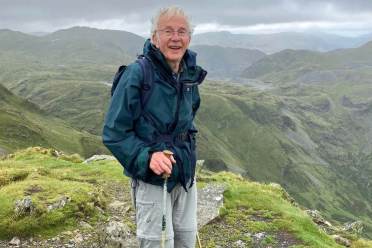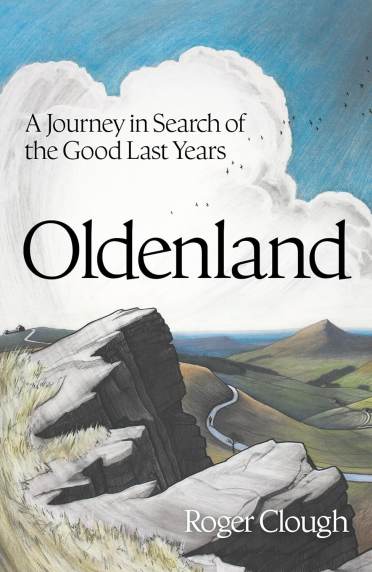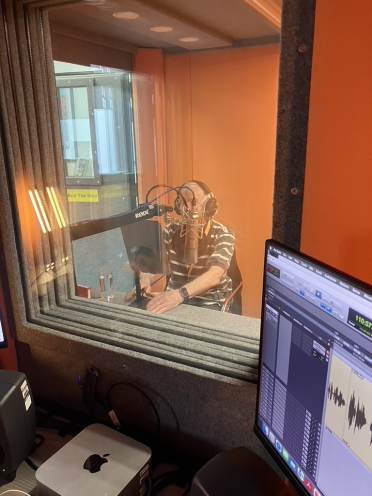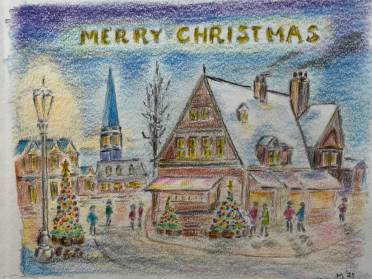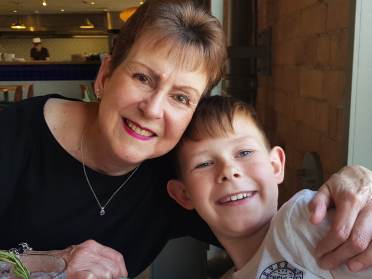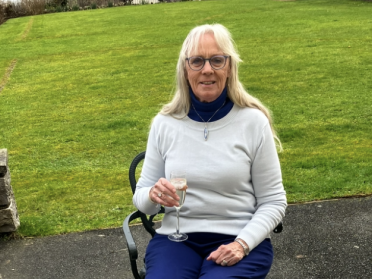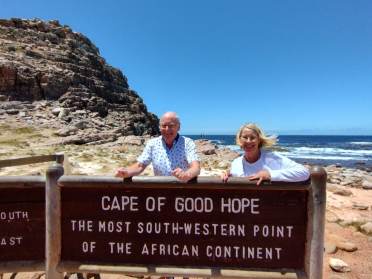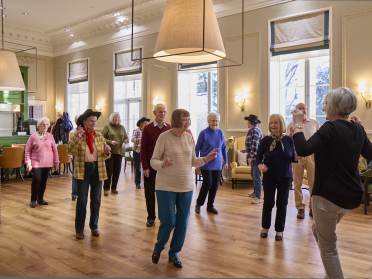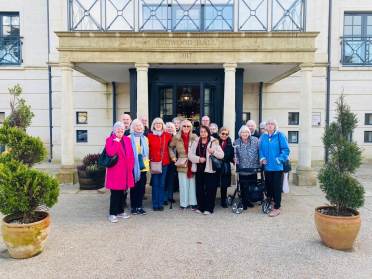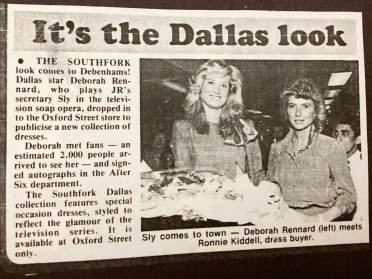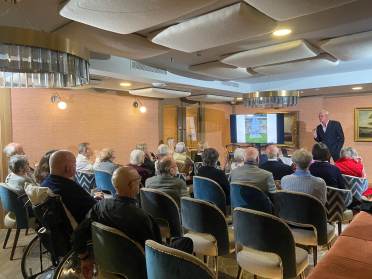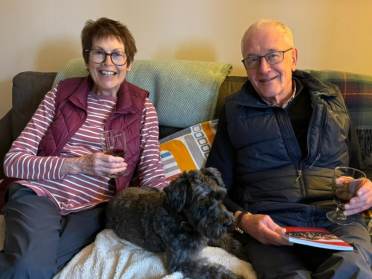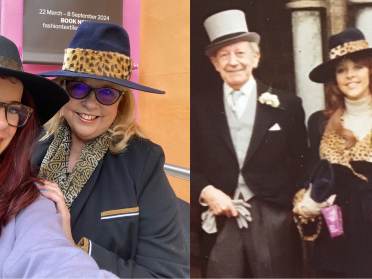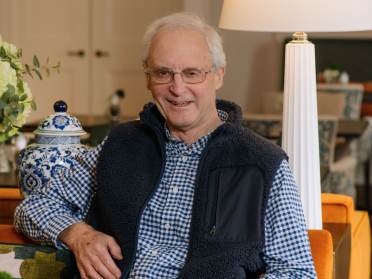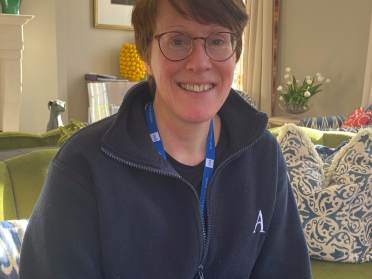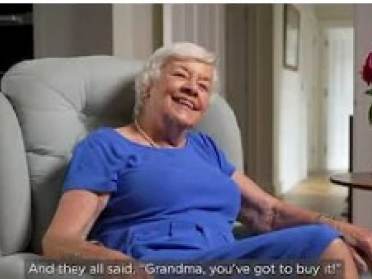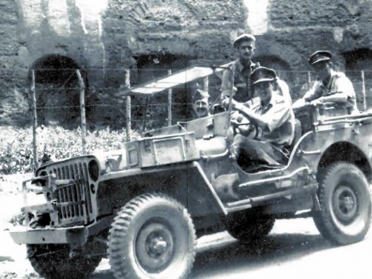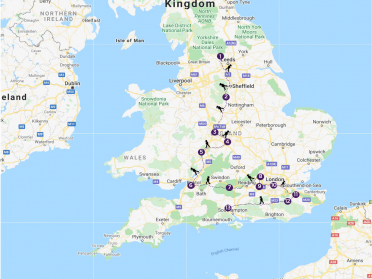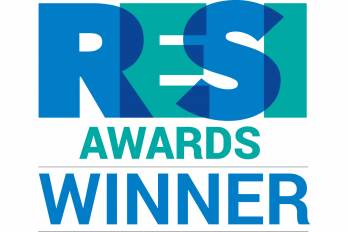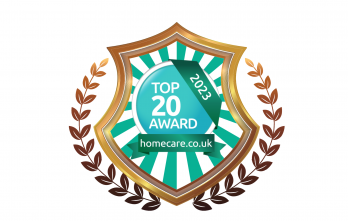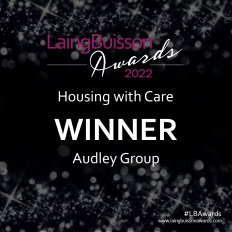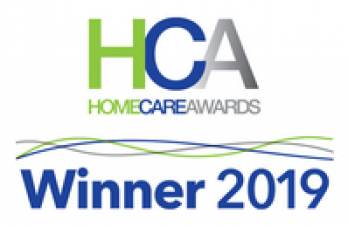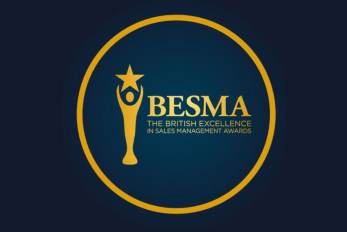The professor who's discovered the secret to thriving in old age
Introducing Oldenland
Roger Clough lives at Audley St Elphin's Park in Darley Dale. All his life he has enjoyed writing and he has just published his first book in retirement.
Congratulations are in order. Mr Clough was interviewed by The Telegraph and you can read the article online. In the interview, Roger explains how we can come to terms with the peaks and troughs of old age, without losing sight of who we are. It's a fantastic read!
We asked Mr Clough a few more questions, to inspire anyone looking to get in to writing at any age.
How was the experience of recording the audio book? Had you ever recorded audio before?
I’ve never recorded for an audio book before. In December I received an email saying that the publishers would send me a list of people from whom I could choose someone to make the recording. There was a postscript that sometimes authors made their own recordings. The publishers and I agreed that professionals would produce a more polished performance, but that there was something distinctive with an author’s voice, in particular for a book that is in part a memoir. I was interested and sent off a sample reading. From there it was agreed that I would have a go.
Four full work days were set aside to record in a Sheffield studio - I sought advice on throat tablets that would keep me going. I was to use a laptop rather than paper copy to ensure there was no sound from turning pages. I sat in a room divided by a glass screen - the producer with script on one screen and a second screen with a graph showing the recording stage. I would hear my own voice as I read. Each of us could stop the recording at any point by talking to the other. “I’ll have another go at that” or “You got the words slightly wrong” and the producer would go back to a phrase, play me in and I would carry on.
Sometimes I would stick at phrases that seemed uncomplicated on paper - and have to keep repeating. The producer was lovely, very supportive and patient. Sometimes I would read - and wish that I could phrase what I had written differently. Overall, a fascinating experience.
What writing app do you use? I know a lot of owners will find this interesting.
Scrivener - I can keep all relevant documents in one place, can have two documents alongside one another on the screen, can move to composition mode where I work on one document with the cursor always centered on screen. Then, I can compile a manuscript by selecting particular documents - for example specific chapters - and the computer will produce a finished document in a format that I choose.
Have you dabbled with generative AI at all?
Never used. Only the obvious general thoughts - the potential for AI to diagnose in medicine, the fears of decisions in key areas of our lives being made by insensitive, or biased criteria.
When did you first discover your passion for writing?
Difficult to say. Writing has been part of my work life from 60 years ago. I enjoy finding words to express what I want to say, and trying to get a rhythm to the structure. Most of my writing has been for academic books and articles - increasingly, there has been an expectation that ideas must be backed by research findings - and so the literature is often bogged down with a succession of references.
In writing this book I have found a new freedom. It has been through many versions over many years, but to my surprise, my agent and then my editor have encouraged me to cut the quotations from novels and research - “Trust your own words”, they would say, “they’re more powerful than the words of others”. They seemed to get inside what I wanted to capture in ways nobody else had ever done with my writing - and so helped me to express my thoughts. They wanted me to write more about walking - linking the ideas of journey and travel to the living of our lives - and I have enjoyed the activity, though like many others have doubts as to whether one version is better than another.
Do you prefer to read fact or fiction?
I read very little non-fiction. It’s fiction I turn to for solace, enjoyment, reflection on the lives of others, the sheer enjoyment of being carried along by a story, taken out of oneself. I love passages where writers describe a seemingly everyday activity but yet convey a deeper understanding of aspects of people’s lives.
Was this your first book published?
Old Age Homes in 1981 was my first book published. I’ve written a lot of books for academic audiences, but this is my first venture into writing for a general audience, to have a book placed in the general shelves of bookshops.
What advice would you give to others who are starting out with writing?
Start putting words on paper or on the computer. Read them back to yourself. Do they capture what you want to express? Do you like the sounds, the pattern of the sentences? Keep that version and have another go. Read books, read books, read books, especially fiction where, typically, good writers are more concerned with words and language.

